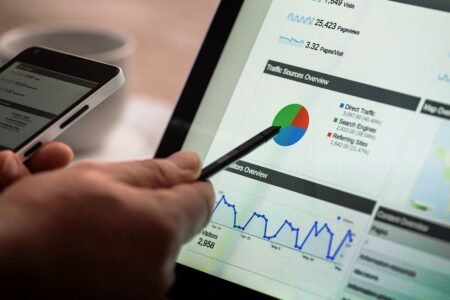France is positioning itself to make digital invoicing mandatory in the near future. Soon, other European countries and other Western countries may follow in these footsteps, making paper invoices a thing of the past. Why is this happening? Is this momentum going to continue? And what can businesses do today to prepare for these changes?
The French e-Invoice Mandate
Art. 153 of France’s Finance Law 2020 introduced what’s now known as the “French e-invoicing mandate”. Originally intended to take effect July 2024, this legislation has been delayed ? but it’s definitely coming in the near future.
Under this new legislation, all businesses must send and receive electronic invoices in a specific format that complies with restrictions outlined by French law. Obviously, this is initially going to be relegated to France. But it’s not a stretch to imagine that France’s neighbors in the European Union could soon adopt similar measures. And after that, the trend of making electronic invoices mandatory could spread all over the world.
Why Does This Mandate Exist?
Why was this mandate introduced? Isn’t it going to disrupt certain businesses?
There are several motivating factors in play here:
- Speed and efficiency. Electronic invoices are considered faster and more efficient than paper invoices, and for several reasons. They can be sent instantaneously, rather than going through the mail. They can be copied quickly and effortlessly. They make it much easier to preserve records and prove that certain transactions took place. They’re also much simpler from a business perspective. In fact, this is why most modern businesses prioritize digital invoices over paper ones; they’ve already realized the inherent advantages.
- Cost reduction. To a lesser extent, this mandate may have been motivated by a desire to save money. Individuals and businesses under this mandate would certainly pay less for postage and processing. And if the volume of paper mail decreases enough, the country of France could save money on mailing costs in general.
- Paperless engagements. Going paperless benefits a business, and the environment in which it operates, in many ways. In addition to saving money and streamlining efficiency, reduced demand for paper products leads to decreased harvesting of trees, preserving natural habitats that would otherwise be disrupted.
- Simplified records. A few decades ago, it was common to find businesses with warehouses full of filing cabinets, housing old archival documents. But in the age of digital records, this is wasteful and unnecessary. Forcing businesses to convert to digital invoices greatly simplifies recordkeeping and could improve consistency on this front.
- Increased competitiveness. Businesses that adopt digital technology tend to have several advantages over their lagging counterparts. If a country is early in the adoption curve of forcing companies to go digital, it should hypothetically have a competitive business advantage over other countries.
When and How Will This Spread?
We know when France’s mandate is coming, more or less, but when and how is this going to spread to other countries?
Unfortunately, there’s no clear answer here. Other countries may look to adopt similar mandates within the first few years following France’s adoption, but if the French law proves effective and popular, we may see an accelerated timeline. In any case, you should expect that the pressure to exclusively trade in digital invoices is going to increase.
What Your Business Can Do Now
What steps can your business take now to prepare for this potential change?
- Start today. We still don’t know exactly when the new French requirements will go into effect. But we know it’s coming. It’s going to be much harder for you to change your business processes under pressure, so you might as well start making changes now if you know you’re going to need them in the future.
- Address your accounting practices. Take a good look at your accounting practices. Do your systems feel streamlined and in line with modern best practices?
- Incorporate better technology. Digital invoicing tools can make your digital transformation much simpler and practically painless. Don’t shy away from upgrading your technology infrastructure.
- Digitize what you can. Go beyond invoices; digitize what you can. If they’re coming for digital invoices now, they’ll probably push further digital requirements in the future.
- Establish greater agility. The more agile and adaptable your business is, the better it’s going to stand up to any future change. You’ll have a much easier time adopting digital invoices ? but also the next items in the pipeline.
It seems like it’s only a matter of time before countries all over the world mandate digital invoice processing, rather than allowing antiquated paper invoicing to continue. While complying with mandates is never ideal, this one happens to be associated with some major competitive advantages ? so it’s a good idea to start preparing to offer digital invoices now.







